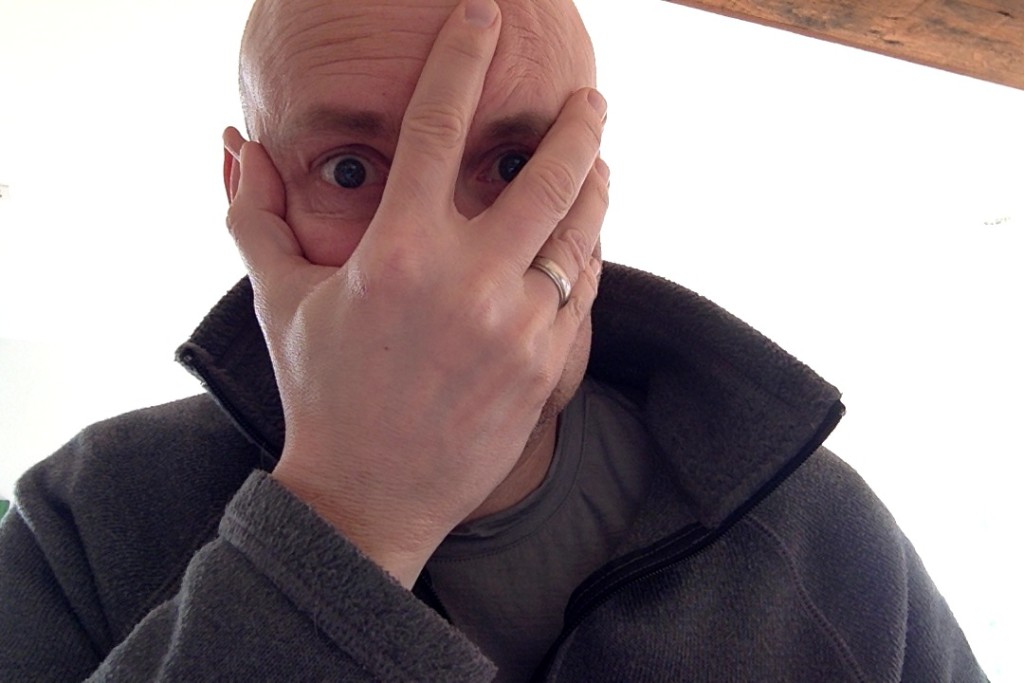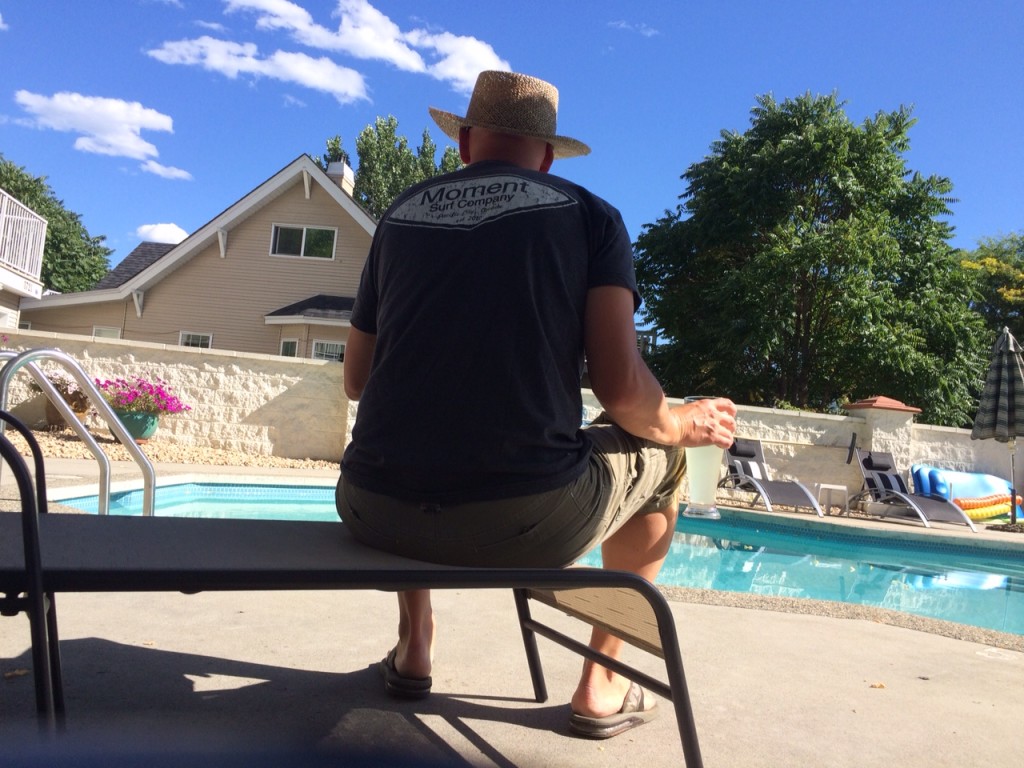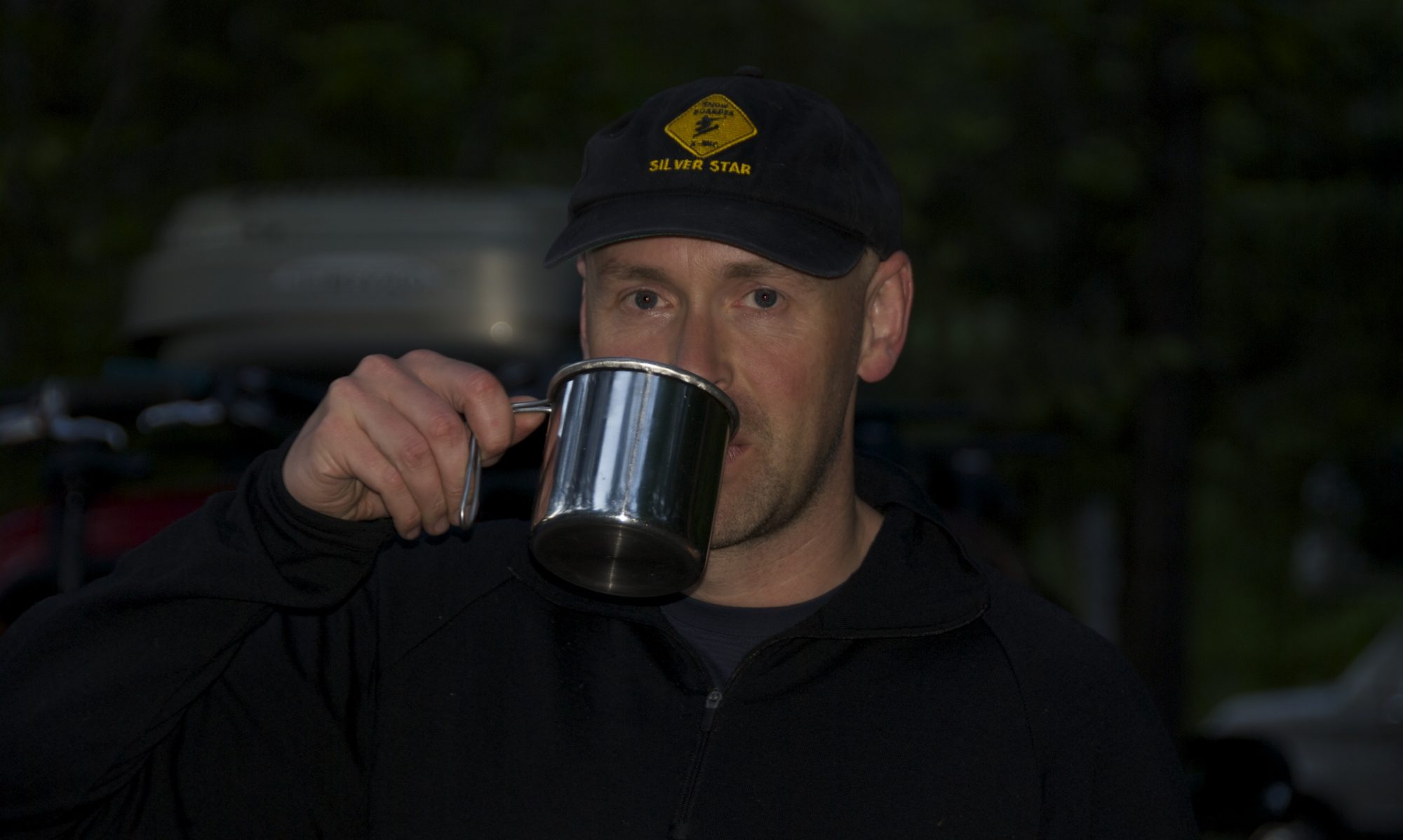by Albert Berkshire
No one ever asks you about your favourite shirt.
People do, however, love to ask about your favourite colour, or food, or car, or brand of bike components…or more recently my favourite book or musician.
Maybe it’s the debate of merits that prompts these questions. People love to debate things.
Years ago, despite what I thought was an impressive collection of Nazareth vinyl, had you asked me my favourite band, I might have said it was Kiss. I had what I was certain were all their albums (yes, also on vinyl), I dressed up as Ace Frehley for Halloween when I was in sixth grade, and I certainly didn’t miss the opportunity to serenade a girl in my elementary school class (from a safe distance, of course) with the words to Beth. Though her name wasn’t Beth. A boy’s gotta try. Even the dorky ones. And to be frank, I may have been a kid, but I was pretty certain Gene had stumbled onto something pretty impressive, and I, too, wanted to rock and roll all night (Kiss, 1975). Possibly with non-Beth Beth.
And then there was the in-between years of Top 40 pop music throughout the mid-eighties that may have been the influence in a few embarrassing record purchases. Except for Madness and The Talking Heads. Madness (Our House, 1982) I can still appreciate. David Byrne of The Talking Heads (And She Was, 1985) was brilliant. (‘Though, there were too many feet in the video. Other people’s feet whig me out.)

Today, since technically by reading on you validate my need to share, I’d have to go with Led Zeppelin as my favourite band. Back in high school, when we were so much more learned and sophisticated than those elementary days, my friend Joe introduced me to The Immigrant Song. I was forever changed. Music, it seemed had more than instruments and choruses. It had feeling. It had emotion. It had lyrics that reached out and grabbed your mind in as tight a clench as with which it held on to your heart. It made us think. And we talked about it. What did it all mean? Most importantly to a couple of high school kids looking for their place in the world, the other kids weren’t hearing this stuff on the local AM radio. We had something different. And we were, in our minds, beyond cool.
Bonham, Jones, Page, and Plant made me listen. They made me rethink what words could do. And to this day, through the many incarnations of U2, the storytelling of the Eagles, the showmanship of Pink Floyd, the depression of Morrissey, the absolute cool of The Verve, the anger of the Pogues, the Ramones, The Violent Femmes, Amanda Palmer, Transvision Vamp, Nirvana, A Perfect Circle (I slept in a ditch that night), and what was described as possibly the first ever on-stage smile of Billy Corgan (also a ditch night), I am most influenced by Led Zeppelin.
Sidebar: I have been on the receiving end of the stink eye on a couple of occasions for interrupting a conversation to turn up Going to California when it started playing on the car radio. And I may have attempted a butt-grope at a high school dance during the standard last-dance song, Stairway to Heaven. But it’s as far as I got. Those Brothers and Nuns didn’t miss much.
Music, admittedly, I will gladly debate with anyone, any time.
Colours. I have a colleague who will debate colours. This possibly happens more in our day to day world of advertising and marketing consultations, but there are specifically studied, established and accepted theories on the impact and influence of colour. The soothing light blue, the urgent red, the hungry yellow (which is why so many fast food restaurants use yellow and red), the calming green. Seriously, we can all mellow out and take a nap at Starbucks.
We can debate these things, but in the end, you either like a colour, or you do not. And as I was asked a couple of weekends ago by a friend as we were getting ready to go out, “Albert? Is green your favourite colour?” I replied without delay, looking at my shirt, “I guess it is. I seem to have it on.”
I’ll get to the heart of the matter (Henley, 1989) in a moment, but first, the others. Sushi. Porsche. SRAM. In case you wondered.
And the book? That’s the tough one. I’ve raved for years about John Birmingham’s He Died With A Falafel In His Hand. A roaring memoir about his time in share housing in Australia. Kurt Vonnegut’s Galapagos left me somewhat dazed and confused (‘Zep remake, 1969). Douglas Copeland’s Generation X, The Bubblegum Thief, and All Families Are Psychotic each kept me feeling like I was going to be forever young (Dylan, 1973). Joseph Monniger’s Eternal On The Water gave me a new appreciation for ravens and crows, and being a lover of nature and the First People’s spiritual world, it still resonates with me. But I’d have to argue that Tom Robbin’s Fierce Invalids Home From Hot Climates may be my favourite book of all time. The insanity of the characters, the rolling storytelling, and the depravity of the idea and ideals truly did take me over the hills and far away (‘Zep, 1973).
A couple of days ago, walking through a parking lot in search of a Thai restaurant (second most favourite food), my wife’s mother said, “Albert…Rosie and Marie said to tell you they enjoyed your book and that you are a good writer.”
“That doesn’t mean they liked it.” I said.
“No.” she relied. “I guess it doesn’t.”
“It’s okay.” I said. “It’s all very subjective. It either resonates with you, or it does not.”
“Well…” she continued. “We did have very different ideas about the ending and they debated it for quite some time. And they want me to ask you if he was or wasn’t…”
“Paulette,” I interrupted. “Your daughter still hasn’t read it. So we should stop there for now.”
I went on to explain that other than the beginning chapter and the ending, I hadn’t read it since the editor did her thing. It’s my preference to not know how she changes my story. (When I hand it over to the publisher, I’m happy with the story I wrote. If they feel they need to change something, then they change it. I know what I wrote and that was the story I wanted to tell.) My point was that I’m certainly not going to explain the characters’ motivations. That, I leave up to the reader – to debate, or not to debate.
But what she said was possibly the nicest feedback I’ve had on We Made A Pact.
It spurred a debate. And that’s the greatest compliment I think I could ever receive for my work.
By the way, that shirt I love? I got it in June of 2011. I was in Seaside, Oregon, when I walked into Moment Surf Shop. I wasn’t looking for a shirt. I don’t like to sport a lot of logos. But this one just had the right feel – at the moment. Serendipity, I guess.
The shirt certainly has seen better days, but it’s been a constant. It’s been the slip-on shirt after more than one muddy mountain bike ride, and has faithfully hung out with me by the pool…sometimes on a sunny day, it’s just been wrapped around my head. It’s just one of those things you come to appreciate. Even if it is just a shirt.
Pretty certain we can’t debate the merits of a shirt. That, I guess, is a safe zone for me.
But I’ll always debate the impact music can have on one’s life. I listened to a lot of music when I was writing We Made A Pact, and from that extensive playlist, I narrowed it down to 24 songs that I felt spoke the emotion of the story. Maybe one day I’ll share that playlist.
We can debate it, if you wish.

Albert Berkshire is a storyteller. His first novel of fiction, We Made A Pact, is published by Friesen Press. It is available in hardcover, paperback, and in various e-book formats. Just follow the links if you’d like to check it out. I hope you will. Public reviews are always welcome. Swapping stories of the first record purchase is welcome, too. For a much shorter, and less frequent rambling, Albert is found on Twitter @albertberkshire, and semi-socially at www.facebook.com/AlbertThomasBerkshire


Addendum: Upon further discussion, my wife said she can live with Going To California, but she’s taking full control of all stereo units if I ever again turn up Peter Frampton’s Do You Feel Like We Do.